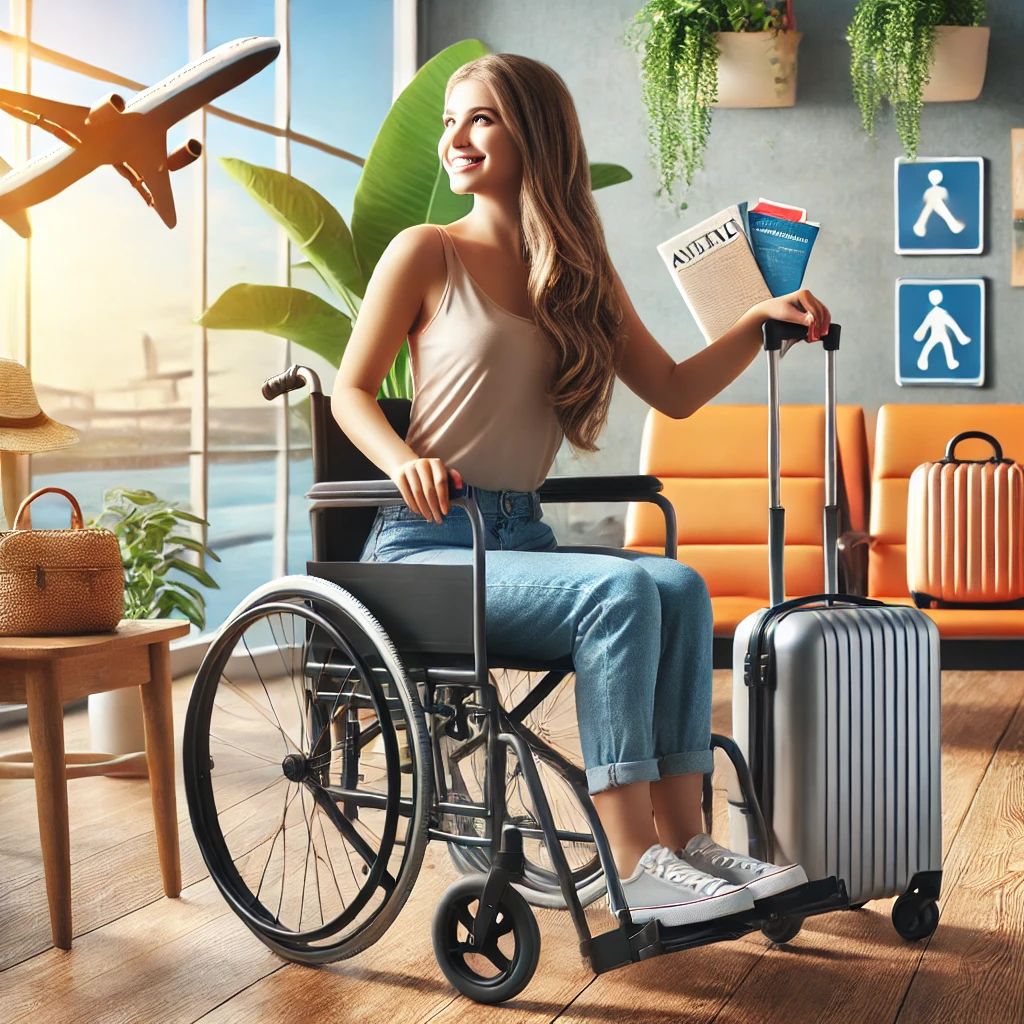
Traveling opens up a world of exploration, adventure, and new experiences. For those with limited mobility, traveling may present unique challenges, but it is by no means impossible. With careful planning, the right resources, and a positive mindset, travelers with limited mobility can enjoy fulfilling and accessible journeys. Here are some comprehensive tips on how to travel with limited mobility, ensuring a smooth and enjoyable experience.
Research and Plan Ahead
Preparation is the cornerstone of accessible travel. Start by researching your destination thoroughly to ensure it meets your accessibility needs. Look for information on the accessibility of public transportation, attractions, accommodations, and restaurants. Websites like AccessibleGO and WheelchairTravel.org provide valuable insights and reviews from fellow travelers with limited mobility.
When planning your itinerary, prioritize activities and sights that are known to be accessible. Contact hotels, airlines, and tour operators in advance to discuss your specific requirements and confirm that they can accommodate your needs. Many establishments are willing to make special arrangements to ensure a comfortable stay, such as providing ground-floor rooms or accessible transportation options.
Choose Accessible Accommodations
Selecting the right accommodation is crucial for a comfortable trip. Look for hotels or vacation rentals that offer accessible rooms and facilities. These should include features like roll-in showers, grab bars, and wide doorways. Booking platforms like Booking.com and Airbnb often have filters for accessibility features, making it easier to find suitable options.
Don’t hesitate to call the property directly to ask detailed questions about their accessibility. Confirm whether common areas such as lobbies, dining rooms, and pools are accessible as well. Reading reviews from other travelers with limited mobility can also provide useful insights.
Utilize Mobility Aids and Equipment
Traveling with mobility aids such as wheelchairs, scooters, or walkers can greatly enhance your independence and comfort. If you do not own a mobility aid, consider renting one for the duration of your trip. Many destinations offer rental services for wheelchairs, scooters, and other equipment.
When flying, inform the airline in advance if you will be traveling with a mobility aid. Airlines are generally accommodating and can provide assistance with boarding, deplaning, and navigating the airport. If your mobility aid is battery-operated, check the airline’s policies regarding batteries and ensure they comply with safety regulations.
Plan for Accessible Transportation
Accessible transportation is key to a smooth travel experience. Research the availability of accessible taxis, ride-sharing services, and public transportation at your destination. Cities with well-developed public transport systems often have accessible buses, trains, and trams equipped with ramps and designated spaces for wheelchairs.
For car rentals, look for companies that offer vehicles with hand controls or wheelchair-accessible vans. Companies like Enterprise and Hertz provide accessible vehicle options in many locations. Booking your transportation in advance ensures availability and peace of mind.
Pack Smart and Light
Packing strategically can make your trip more manageable. Bring essential medications, medical supplies, and documentation, including prescriptions and a letter from your doctor if needed. Pack comfortable clothing and shoes suitable for extended periods of sitting and walking.
Consider using luggage with wheels or a travel backpack to keep your hands free. Packing light reduces the physical strain of handling heavy bags and makes it easier to navigate airports and hotels. If you require specific items such as a shower chair or portable ramp, inquire whether your accommodation can provide these or if you need to bring your own.
Take Advantage of Priority Services
Many travel services offer priority options for travelers with limited mobility. Airports, train stations, and bus terminals often provide priority boarding, seating, and security screening. Take advantage of these services to reduce waiting times and ensure a more comfortable experience.
Airlines typically offer pre-boarding for passengers with disabilities, allowing you to board the plane first and get settled without the rush of other passengers. When booking tickets for attractions or events, inquire about accessible seating and any available discounts for travelers with disabilities.
Stay Healthy and Comfortable
Traveling can be physically demanding, so it’s important to prioritize your health and comfort. Stay hydrated, eat nutritious meals, and get plenty of rest. If you’re on a long flight or car journey, take regular breaks to stretch and move around to prevent stiffness and discomfort.
Manage your energy levels by pacing yourself and scheduling downtime into your itinerary. Listen to your body and take breaks as needed to avoid fatigue. Traveling with a companion can provide additional support and assistance, making the journey more enjoyable and less stressful.
Seek Support and Assistance
Don’t hesitate to seek support and assistance when needed. Travel agencies specializing in accessible travel can help you plan a trip tailored to your needs. These agencies can arrange for accessible accommodations, transportation, and activities, ensuring a seamless experience.
Local disability organizations and support groups can also provide valuable information and resources. Connecting with other travelers with limited mobility through online forums and social media can offer practical tips and encouragement.
Embrace the Journey
Traveling with limited mobility may require extra planning and adjustments, but it also offers unique opportunities for personal growth and discovery. Embrace the journey with a positive attitude and an open mind. Focus on the experiences and memories you’re creating rather than the challenges you might encounter.
Celebrate your achievements and take pride in your ability to explore the world despite any limitations. Your journey can inspire others and raise awareness about the importance of accessibility in travel.
In conclusion, traveling with limited mobility is entirely possible with thoughtful planning and the right resources. By researching your destination, choosing accessible accommodations, utilizing mobility aids, and taking advantage of priority services, you can enjoy a fulfilling and stress-free travel experience. Embrace the adventure, stay positive, and create unforgettable memories as you explore the world.


